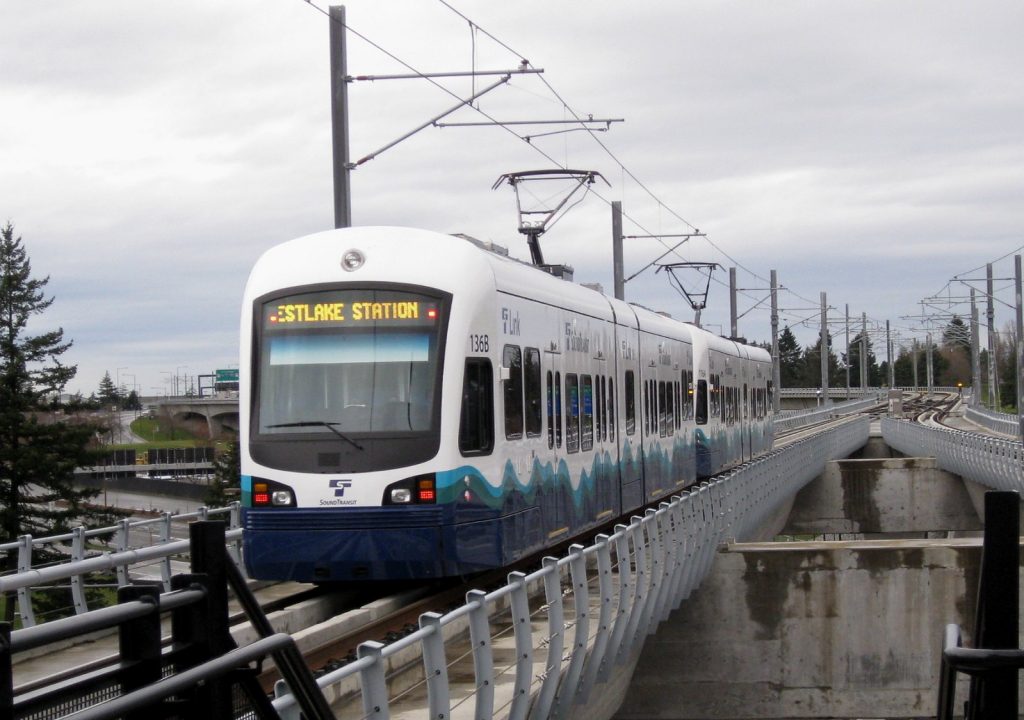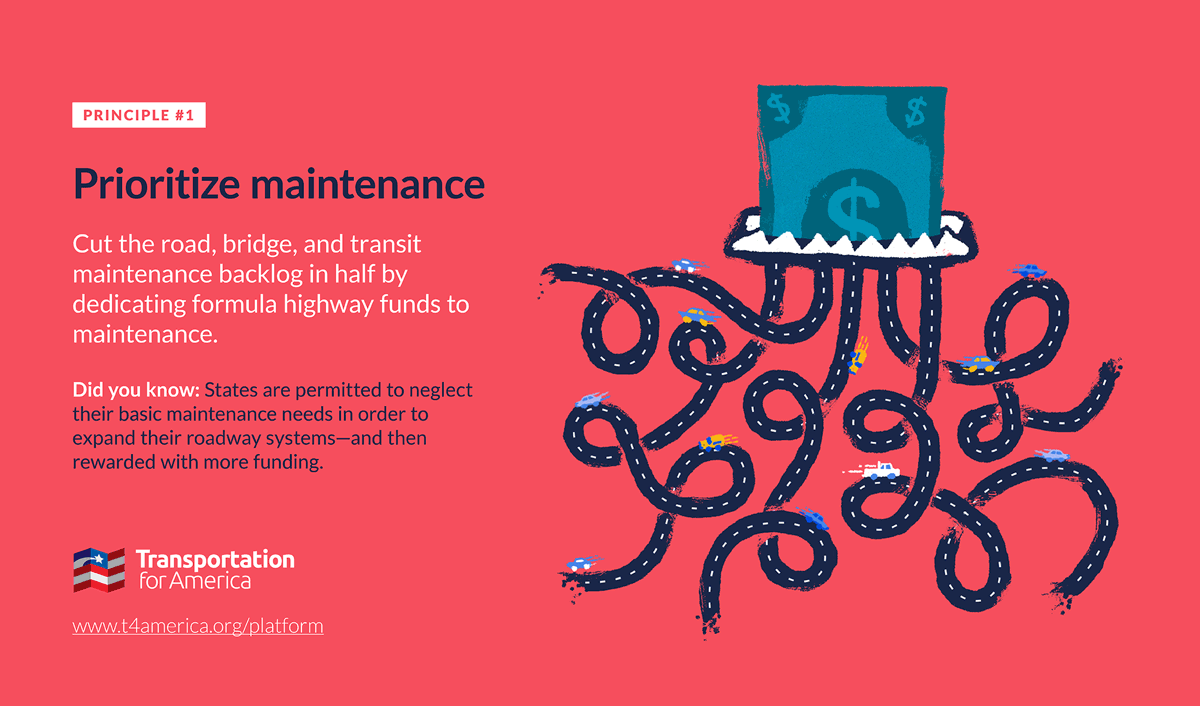Washington State leads in transportation improvements—one ballot measure could end all that
This November, Washington residents will vote on a ballot measure that would slash available funding for transit agencies as well as road maintenance and safety projects by limiting annual vehicle registration fees to $30 and reducing vehicle taxes.

As gas tax and other transportation revenue failed to grow the way it used to in the 1990s and 2000s, states started filling those gaps by raising new state funds for transportation. Voters across the country, in places across the political spectrum, have supported increasing taxes to raise funds for transportation projects. In 2015, Washington passed legislation to increase the fuel tax by 11.9¢ per gallon and increase other vehicle fees, raising billions for transportation projects, including $1 billion for transit, pedestrian, and bike projects—and also gave locals more flexibility to raise transit funds through other mechanisms.
In Washington State, a ballot measure this November could change much of that. Initiative 976 seeks to limit annual license fees for vehicles at $30; base vehicle taxes on the Kelley Blue Book value rather than 85 percent of the automaker’s retail price; and repeal transit agencies’ ability to levy motor vehicle excise taxes, according to Ballotpedia.
This cut to current and future funding would be disastrous all across the state. But perhaps the place most at risk—and the biggest example of a region taking control of its own destiny—is the Puget Sound area of greater Seattle, where voters passed Sound Transit 3 (ST3), a $53.8 billion investment to expand light rail to Everett, Issaquah and Tacoma and Seattle neighborhoods of Ballard and West Seattle, improve bus rapid transit lines, and increase capacity on existing rail lines.
As the state’s economic engine, the Puget Sound region is choked by traffic that once threatened to hamper its growth and livability. ST3, in combination with local transit investments in Seattle and Snohomish County, put the region on track to develop a robust transit system that gives people an opportunity to avoid crippling congestion.
I-976 puts this all at risk, as a large portion of the revenue needed to implement ST3 comes from a voter-approved 0.8 percent increase on license fees. I-976 would cut Sound Transit funding for light rail expansion, bus rapid transit and commuter rail in King, Pierce and Snohomish counties by at least $20 billion through 2041, according to Sound Transit spokesman Geoff Patrick. This cut consists of $6.9 billion in lower license fee revenue and $13 billion in higher borrowing costs in part to replace those funds.
Meanwhile, in Spokane, cuts from I-976 would reduce state funding for the Central City Line bus rapid transit project by $11 .7 million, slowing the project considerably.
While clearly anti-transit, I-976 is different than the anti-transit campaign that failed recently in Phoenix. The Phoenix effort aspired to ban all future light rail construction and was supported by funding from the Koch Brothers. In Washington, there’s no news indicating support from the Koch Brothers, and I-976 would cut far more than just transit. For example, communities in central Washington would see street maintenance funding cut substantially, with over $22.5 million cut for a maintenance and safety road project in Wenatchee.
The Seattle Times said it best in its editorial board’s resounding opposition to the ballot initiative:
Nothing about I-976 is a good idea, in terms of responsible governance or prudent money management. [Tim Eyman, the political activist who sponsored the ballot initiative] asks voters to buy a falsity that there’s some miraculous way to fund our state’s backlog of bridge, road and transit needs. Because the courts cannot end this toxic nonsense quickly enough, voters must reject I-976 themselves.
Washington voters will have a choice on November 5: Pay less in car taxes to spend more time commuting on crumbling roads and bridges and non-existent transit services, or continue to spend money on improving quality of life through smarter transportation investments.




















1 Comment